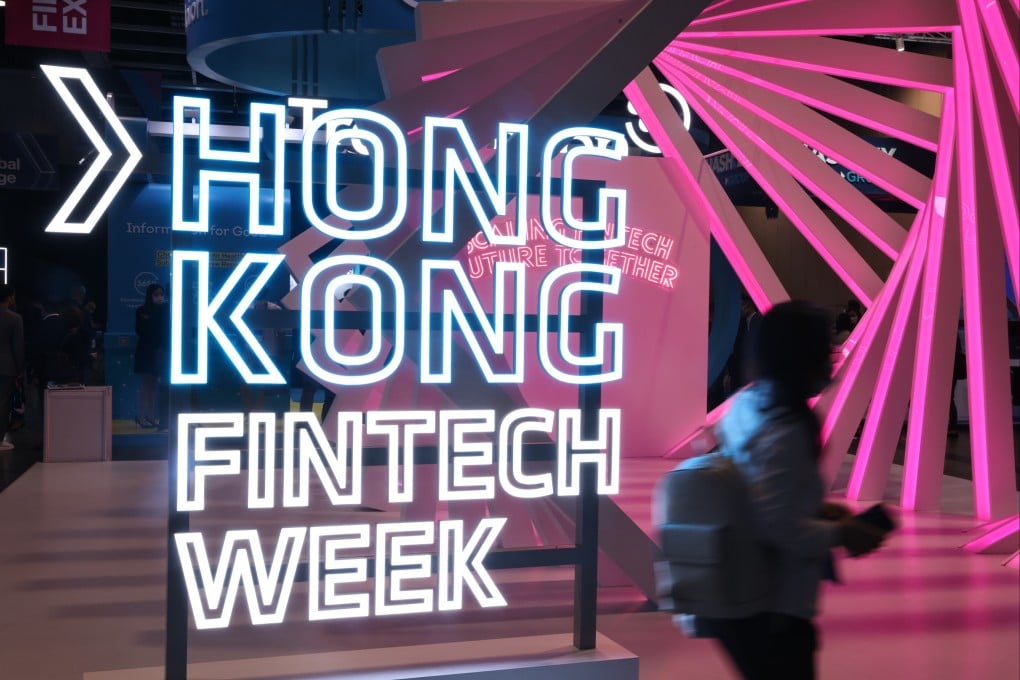Hong Kong’s FinTech Week faces off with Singapore event as cities jostle to be Asia’s financial innovation hub
- The highlight of Hong Kong’s fintech event next week is expected to be a relaxation of cryptocurrency rules for retail investors
- The event coincides with a similar one in Singapore, which is seen as leading Hong Kong in progressive crypto rules and opening up to the world

Hong Kong’s five-day government-backed FinTech Week, which kicks off on Monday, is set to attract 20,000 attendees and 3 million online viewers as the city seeks to showcase its commitment to financial innovation while a similar event takes place in Singapore.
Hong Kong, which lags behind Singapore in reopening to the rest of the world by relaxing Covid-19 control measures, is fighting to convince investors that it remains the best place for developing the future of payments, digital currency and Web3 technologies.
FinTech Week, which includes a two-day conference on Monday and Tuesday, is scheduled back-to-back with the Global Financial Leaders’s Investment Summit, which starts on Wednesday. That event is designed to showcase to global bankers that the city’s status as an international financial centre remains intact despite more than two years of travel restrictions, an exodus of talent, a stock market in free fall, and an effort to “clean up” civil society under the Beijing-imposed national security law.
Tickets for FinTech week are on sale for US$599 for in-person events and US$89 for online attendance.
“This year’s FinTech Week coincides with the long-awaited opening up of the city, and is important as it will set the tone for the new administration and signal to the world that Hong Kong is open for business again,” said Lucy Gazmararian, founder and managing partner of Hong Kong-based Token Bay Capital.